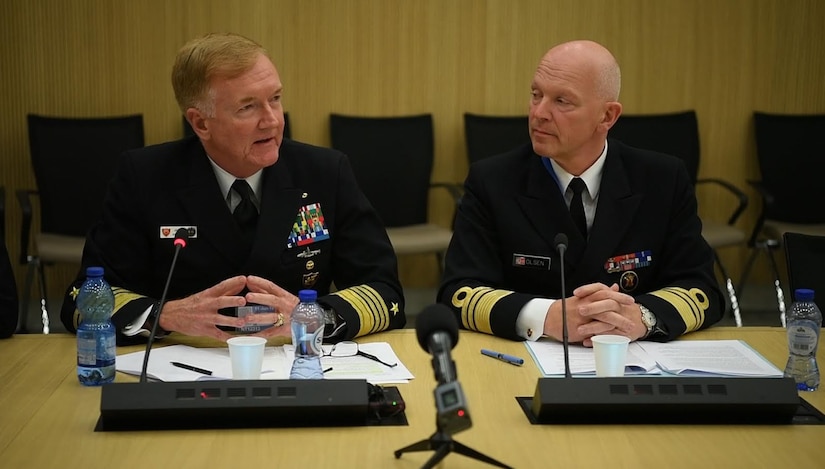By Jim Garamone, DoD News, Defense Media Activity
WASHINGTON -- NATO is preparing for its largest military
exercise since 2002, with more than 40,000 personnel from 30 NATO and partner
counties participating.
The NATO commander of the exercise, Navy Adm. James G. Foggo
III, briefed reporters on the planning for Exercise Trident Juncture 2018 at
NATO headquarters in Brussels yesterday. Foggo is the commander of NATO’s Joint
Force Command based in Naples, Italy. He’s also commander of U.S. Naval Forces
Europe and Africa.
Norwegian navy Vice Adm. Ketil Olsen, his nation’s military
representative to the NATO Military Committee, also briefed.
Deterrent, Defense
The aim of the exercise is to provide a deterrent effect and
defense against “any threat, from any direction, at any time,” Foggo said.
Trident Juncture demonstrates that NATO is relevant, united
and ready to defend itself employing collective defense, Foggo said. The
exercise’s scenario posits a violation of the sovereignty of a NATO ally -- in
this case, Norway.
Under NATO’s Article 5, collective defense means an attack
on one ally is considered as an attack against all allies.
The main exercise is scheduled for Oct. 25 to Nov. 7 in and
around Norway with a preliminary exercise in the waters off Iceland Oct. 15-17.
Personnel from all U.S. services will participate in the
exercise. Sweden and Finland will also participate.
The core of the exercise is the NATO Response Force. The
exercise will serve to qualify force the force as combat ready. “Within this
exercise we will have the 5,000-person Spearhead Force -- the Very High
Readiness Joint Task Force exercising in Norway,” Foggo said.
Challenging Exercise
Trident Juncture will be a challenge, Olsen said.
“Statistically, there will be rain and/or snow and wind.
And, there actually might be a lot of it,” he said.
Foggo said the exercise will also test alliance logistics
capabilities to land a large force and sustain that force.
“The plan is to upsize the Joint Force Headquarters with a
larger contingent of logisticians,” he said.
NATO “is about defend and deter,” Foggo said. “We don’t look
for reasons to conduct offensive operations, anywhere. It’s a defensive
alliance. That’s what Article 5 is all about.”
Much of the exercise planning has taken place in the
unclassified realm, including the dates of the exercise and the relative size
of the national contingents, Foggo said.
“One of NATO’s strengths is we have nothing to hide,” he
said. “This is a demonstration in a very transparent way of a capability, and
we want people to know that.”









No comments:
Post a Comment